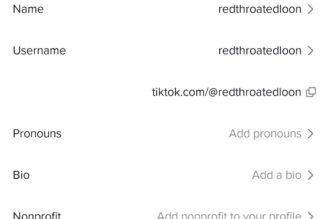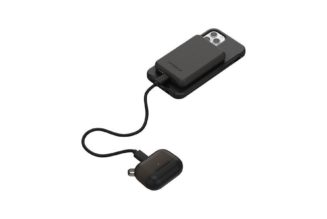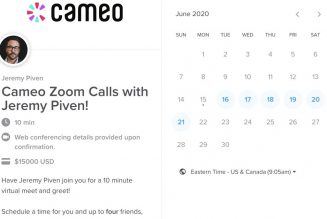Google’s latest streaming device, the $30 Chromecast with Google TV HD, isn’t intended for home theater enthusiasts that live and breathe 4K and Dolby Atmos. Quite the opposite. The device is limited to a max resolution of 1080p (Full HD) and lacks Dolby’s best video and audio tricks altogether. It is at least capable of playing HDR video. But the target customer is clear: this product is meant for people who want to bring new smarts to an old TV (or monitor). Maybe you’ve got an Airbnb in need of more entertainment. These are the use cases where Google’s new streamer — and similarly-priced starter options from Roku and Amazon — make complete sense.
Despite having a mediocre processor that sometimes plods along navigating the interface, the Chromecast with Google TV largely succeeds at its mission of putting a good streaming experience wherever you might want it. And just because it’s inexpensive doesn’t mean it’s incapable. Aside from its core features and bundled remote, you can run a USB hub into the Chromecast HD and take advantage of external storage, plug in a webcam for video conferencing, or a wired ethernet connection for bulletproof streaming.
a]:shadow-highlight-franklin”>HOW WE RATE AND REVIEW PRODUCTS
In terms of its design and size, good luck spotting any differences between this $30 dongle and the $50 Chromecast with Google HD 4K. The older hardware comes in several colors, but you’re stuck with white for the HD model. That’s really the only visual differentiator. Otherwise they both plug into an HDMI port and come with a USB-C power adapter since the USB ports on TVs often can’t deliver enough juice to keep them running optimally. The included voice remote is also identical and features the same shortcut buttons for Netflix and YouTube — plus a dedicated Google Assistant button. It’s a comfortable, compact remote that’s easy for you (or guests at an Airbnb) to get down in no time.
%2Fcdn.vox-cdn.com%2Fuploads%2Fchorus_asset%2Ffile%2F24094828%2FChromecastHDtable.jpg&w=2400&q=75)
You already know its video limits, but for audio, Chromecast with Google TV HD supports traditional Dolby Digital, so you can still enjoy surround sound. Just without the Atmos height channels.
Playback resolution aside, the user experience of both Chromecasts is, again, the same. And that’s a good thing. Despite some lingering sluggishness that Google is still trying to resolve, Google TV remains my favorite interface for browsing TV shows and movies from multiple different streaming apps and internet TV services. Navigating around its sections — For You, Live TV, Movies, Shows, etc. — is intuitive, the recommendations are often on point, and Google’s advertising is inoffensive. It’s not as blatant as what you get from Roku or Amazon, Google’s only competitors at this price point. Every major streaming app is accounted for, though key players like Netflix have rebuffed some of Google TV’s features like the universal watchlist. It’s not enough to ruin my preference for the platform, but it can be annoying.
%2Fcdn.vox-cdn.com%2Fuploads%2Fchorus_asset%2Ffile%2F24096772%2FDSCF9948.jpg&w=2400&q=75)
Google TV has supported personalized profiles (and content-appropriate child accounts) for some time now, so everyone in your home can have their own watchlist and personalized picks. On the whole, whether you’re digging into a show’s details page, doing a voice search, controlling your smart home, or pulling up a Nest camera feed, everything about Google TV feels sleek and modern.
I still think Google would be well served by releasing a powerful streaming gadget that could truly showcase this software to its full potential, but I haven’t had a bad time using the Chromecast HD. I was worried that would be the case, but Google’s optimizations over time (and the newer Android 12-based OS) make it perfectly tolerable. Whether that continues to prove true over time, we’ll know within a few months. What I can say now is that any performance dips are just momentary and not a constant annoyance.
Explore the Chromecast’s settings and you’ll find that Google will let you go down either lane: simple or advanced. New with Google TV running Android 12, there’s a “match frame rate” setting. But this goes beyond other implementations I’ve seen and gets delightfully nerdy. You get three choices:
Seamless
If the app requests it, your device will match its output to the original frame rate of the content you’re watching, ONLY if your TV can perform a seamless transition.
Non-seamless
If the app requests it, your device will match its output to the original frame rate of the content you’re watching. This may cause your screen to go blank for a second when exiting or entering a video playback.
Never
Even if the app requests it, your device will never try to match its output to the original frame rate of the content you’re watching.
I appreciate that Google understands home theater nerds are often so finicky that a seamless transition between frame rates really matters. You also get some privacy-centric benefits with the newer software, like the ability to cut off microphone (in the handheld remote) or camera access (should you have a webcam hooked up). Text scaling has been added, letting you adjust the size of on-screen text between 85 and 115 percent. And setup gets a tad faster thanks to an onscreen QR code that can quickly pull the Chromecast onto your Wi-Fi network. Obviously these improvements won’t be exclusive to the cheaper HD Chromecast for long; Google has confirmed Android 12 is coming to the 4K model in the near future.
The Chromecast with Google TV HD still fully supports its longtime namesake feature: casting. But its cloud gaming days are effectively numbered — at least when it comes to Stadia. Personally, it still boggles my mind that Google has yet to release a full-fledged Google Photos app designed for the TV screen. I’d be all over that. Those with smart homes would similarly appreciate a full Google Home app for the TV platform, but that too is still missing.
%2Fcdn.vox-cdn.com%2Fuploads%2Fchorus_asset%2Ffile%2F24094868%2Fremote.jpg&w=2400&q=75)
In a week or so of regularly using the Chromecast with Google TV HD, I haven’t uncovered any major issues or frustrations. It provides the same modern, content-first presentation as the aging 4K hardware, but for $20 less. And it’s already been discounted at several retailers, so this might prove to be a compelling impulse buy for many over the holidays.
If you’re a videophile, you’re probably paying this product zero attention. 4K TV owners should absolutely look elsewhere. But for anyone that needs a streamer ideal for plugging into a secondary TV in the kitchen, gym, a second bedroom… wherever, this $30 Chromecast does the job and offers a much richer set of features than the original Chromecast from nearly a decade ago — and it somehow costs even less.
a:hover]:shadow-highlight-franklin [&>a]:shadow-underline-black dark:[&>a:hover]:shadow-highlight-franklin dark:[&>a]:shadow-underline-white md:text-30″>AGREE TO CONTINUE: CHROMECAST WITH GOOGLE TV HD
Every smart device now requires you to agree to a series of terms and conditions before you can use it — contracts that no one actually reads. It’s impossible for us to read and analyze every single one of these agreements. But we started counting exactly how many times you have to hit “agree” to use devices when we review them since these are agreements most people don’t read and definitely can’t negotiate.
To use the Chromecast with Google TV HD, you must agree to:
- Google Terms of Service
- Google Privacy Policy
- Google Device Arbitration Agreement: “All disputes regarding your Google device will be resolved through binding arbitration on an individual, non-class basis […] unless you opt out by following the instructions in that agreement.”
The following agreements are optional:
- Use Chromecast location: “Allow Google and apps with your permission on your Chromecast to use the Chromecast location estimated from Wi-Fi.”
- Send usage and diagnostic data
Additionally, if you want to use the Google Assistant, you must agree to let Google collect:
- App info from your devices
- Contact info from your devices: ”This data may be saved and used in any Google service where you are signed in to give you more personalized experiences. You can see your data, delete it and change your settings at account.google.com”
Streaming services also have their own terms of service and privacy policies.
Final tally: at least three mandatory agreements and at least four optional agreements.
Photography by Chris Welch / The Verge









